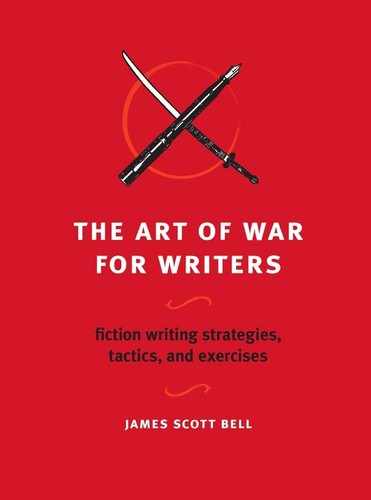
239
73
“Never assume that a rejection
of your stuff is also a rejection
of you as a person … unless
it’s accompanied by a punch
in the nose.”
1
Writer Barnaby Conrad tells the story of a matador, all
decked out in his “suit of lights,” talking to a group of
reporters outside the arena.
One reporter asks, “How did you happen to become
a bullfi ghter?”
The matador replied, “I took up bullfi ghting because
of the uncertainty of being a writer.”
Truth be told, many of us would rather face the
horns of an angry bull than another rejection letter. At
least the bull isn’t intimating that we can’t write.
We also know rejection goes with the territory. No
way to avoid it. But there are ways to keep rejection from
becoming toxic, making you want to do a Sinatra: Roll
yourself up in a big ball and dieeeee.
A rejection says one of two things: Either a piece isn’t
right for the publisher at that time, or it is not up to their
1 Quote from author Ron Goulart.
Z4273i_221-242.indd 239Z4273i_221-242.indd 239 9/24/09 11:21:40 AM9/24/09 11:21:40 AM

240
standards. The fi rst is something you can’t change; the
second you can. You do it by learning to write better.
If, for some strange reason, someone were to tell you
that you personally don’t have what it takes to be a writer,
you can be sure that someone is off his beam. How can
anyone predict your future? Writing is a craft. People can
learn how to write. No one has the capacity to tell you
that you are the exception to the rule.
An obscure editor once told a future Nobel Prize
winner: “I’m sorry, Mr. Kipling, but you just don’t know
how to use the English language.” Kipling we remember.
The editor no one can recall.
I don’t measure a man’s success by how high
he climbs but how high he bounces when he
hits bottom.
—General George S. Patton
It’s also comforting to know that rejection happens
to all writers, no matter how well known. Just remem-
bering that fact helps enormously when a new rejection
letter trembles in your fi ngers.
Such examples can also remind you of the value of
persistence. One of my writing heroes, William Saroyan,
collected a pile of rejection slips thirty inches high—some
seven thousand—before he sold his fi rst short story. Alex
Haley, author of Roots, wrote every day, seven days a week,
Z4273i_221-242.indd 240Z4273i_221-242.indd 240 9/24/09 11:21:40 AM9/24/09 11:21:40 AM

241
for eight years before selling to a small magazine. They
stuck it out, and eventually broke through.
One of my favorite little books, Rotten Rejections from
Pushcart Press, is a compendium of the setbacks some of
our most famous writers received. For example:
Zane Grey, who became one of the best-selling au-
thors in history, got this from an editor rejecting one of
his early novels: “I do not see anything in this to convince
me you can write either narrative or fi ction.”
Tony Hillerman sold millions of books about a Na-
vajo police offi cer working on the reservation. An editor
wrote him, “If you insist on rewriting this, get rid of all
that Indian stuff.”
Regarding Animal Farm, George Orwell was told, “It
is impossible to sell animal stories in the U.S.A.”
If it happened to them, it will happen to you. So always
remember you’re in good company. And keep writing!
The best rejection is constructive. Unfortunately, it
is all too rare. Editors usually don’t have the time or in-
clination to sit down and tell you where your manuscript
may have gone wrong.
When one does take the time, though, treasure the
advice. See what you can learn from it. And write a thank
you note to the editor. It’s not just the right thing to do;
it will almost always be put in the “good graces” section
of that editor’s mind. This can be invaluable when you
submit another piece to the same person.
Z4273i_221-242.indd 241Z4273i_221-242.indd 241 9/24/09 11:21:40 AM9/24/09 11:21:40 AM

242
When rejection comes with specificity, use it as a
road sign. It will help you get closer to your eventual
target—publication.
Just be sure to keep writing.
Be done with the past, save where it serves to
inspire you to greater and nobler effort. Be
done with regrets over vanished opportunities,
seeming failures, and bitter disappointments …
Be done with the “might have been,” and think
of the “shall be.”
—Grenville Kleiser
Z4273i_221-242.indd 242Z4273i_221-242.indd 242 9/24/09 11:21:40 AM9/24/09 11:21:40 AM
..................Content has been hidden....................
You can't read the all page of ebook, please click here login for view all page.
